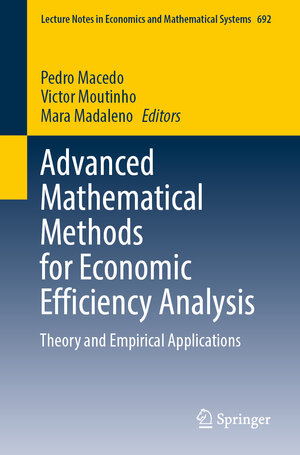
Advanced Mathematical Methods for Economic Efficiency Analysis
Theory and Empirical Applications
herausgegeben von Pedro Macedo, Victor Moutinho und Mara MadalenoEconomic efficiency analysis has received considerable worldwide attention in the last few decades, with Stochastic Frontier Analysis (SFA) and Data Envelopment Analysis (DEA) establishing themselves as the two dominant approaches in the literature. This book, by combining cutting-edge theoretical research on DEA and SFA with attractive real-world applications, offers a valuable asset for professors, students, researchers, and professionals working in all branches of economic efficiency analysis, as well as those concerned with the corresponding economic policies.
The book is divided into three parts, the first of which is devoted to basic concepts, making the content self-contained. The second is devoted to DEA, and the third to SFA. The topics covered in Part 2 range from stochastic DEA to multidirectional dynamic inefficiency analysis, including directional distance functions, the elimination and choice translating algorithm, benefit-of-the-doubt composite indicators, and internal benchmarking for efficiency evaluations. Part 3 also includes exciting and cutting-edge theoretical research on e. g. robustness, nonparametric stochastic frontier models, hierarchical panel data models, and estimation methods like corrected ordinary least squares and maximum entropy.



